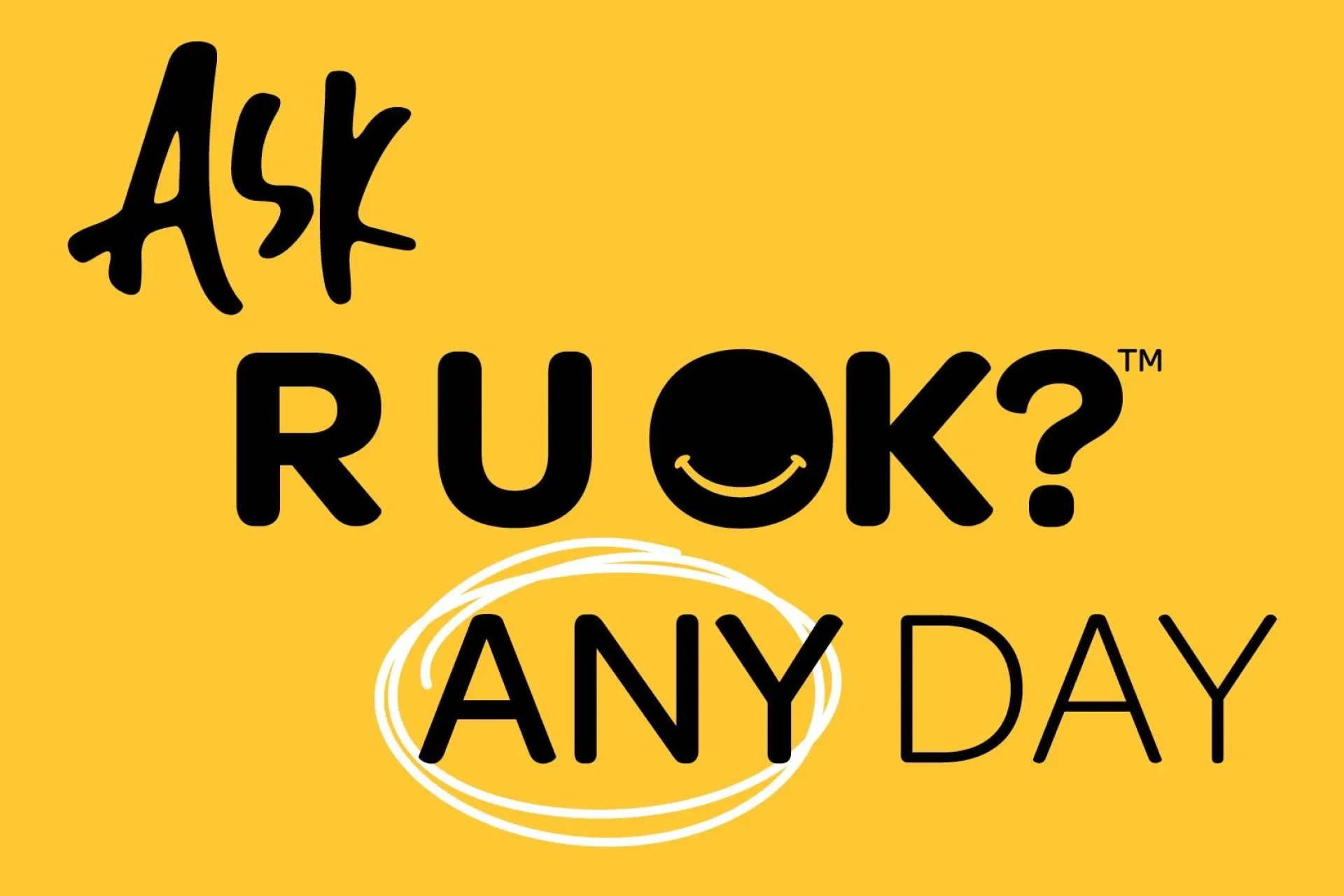General News
13 September, 2024
R U OK? Day kickstarts crucial local conversations, and shines light on service gaps
Yesterday marked the 25th anniversary of R U OK? Day — and while its importance in encouraging essential conversations is crucial, the national campaign has also highlighted the need to improve access to mental health services.

On R U OK? Day individuals in workplaces, schools and communities are encouraged to reach out to others and ask, ‘are you okay?’.
Although it seems like a simple question, those three words could be the start of a complex, and potentially life changing, conversation.
While community awareness has broken down a lot of the stigma associated with mental illness, a common concern voiced by those who take part in the day is where to turn if the person they ask responds with ‘no, I am not okay’.
According to the campaign, when met with a “no”, people should: Dig a bit deeper, listen with an open mind, encourage action and offer support, and make time to check in.
However, can we go beyond a simple four-step process?
In her role as Lifeline Loddon Mallee centre supervisor, Megan Logan and her team are often the first point of contact for those struggling with mental illness.
Ms Logan said that, while people don’t need to become experts in mental health, it is important they have some information available before asking a vulnerable person ‘are you okay?’.
“Take one step back before asking the question; have a little bit of a plan beforehand and choose your time and place really carefully,” Ms Logan said.
“If you are going to open up a conversation anticipating someone might say ‘no, I’m not okay’, have a read of all of the websites that have lots of toolkits on conversations.
“Websites for R U OK? Day, Beyond Blue and Lifeline are just three that have conversation toolkit guides. There’s lots of resources you can read suggesting what you might say or how to approach it.”
The theme for this year’s event — R U OK? AnyDay — acknowledges that, while one day of action can raise awareness, it represents the start of a series of conversations and actions.
It is also important to recognise that people who are emotionally vulnerable might not be comfortable sharing with others, so reminding people generally about the range of local services available might be less confronting.
If a person tells you they are struggling with their mental health, the next question to ask is — are they ready to seek help?
“The next step is just asking them if they want to be connected with other support and gently direct them to those supports,” Ms Logan said.
“We all have the entire internet sitting in our pockets on our phone so, depending on what they say, you can say ‘hey there’s someone you can talk to about that’ and discuss what services are available.”
But for some, accessing necessary help requires more than just preliminary support.
“We have got to be really agile in the way we help people experiencing different levels of difficulties,” Maryborough Community House treasurer John Lelean said.
The community house is often frequented by people experiencing mental health issues.
“We’ve had quite a range of people coming in and asking for advice — there are a lot of tears at times because it’s a very emotional thing to ask for help,” Mr Lelean said.
“People come in and say: ‘I’m so lonely, I’m in tears at night, I’m in my 80s, I have no one to talk to, can you call me back this evening and talk’ — so I know they are not okay and they have fallen through the gaps and no one is caring for them.”
This rift in access to services is becoming more apparent — but according to Maryborough District Health Service’s (MDHS) Robyn Jordan there are a number of different options local people can explore when looking for mental health support.
“We have our social work team that will assist people with mental health issues and, if need be, refer them on,” she said.
“All of our GPs can do mental health plans with clients and refer to their psychologist.
“In our community services team within MDHS we have drug and alcohol workers that do mental health assessments. We also have a specific drug and alcohol mental health worker that can do assessments and work with people with mental health and substance abuse issues.”
While there might be a shortage of psychiatrists or psychologists in regional areas, a range of health professionals are skilled in working with people living with mental illness.
Ms Logan, from Lifetime Loddon Mallee, said it’s important for people to consider options when seeking support.
“You might think the gold-standard is a psychologist, but there are really great counsellors, psychotherapists, social workers who are mental health clinicians and mental health nurses who do counselling,” she said.
“My biggest tip with any mental health professional is you need a personality match to some extent. A lot of people get referred to someone and, if they don’t click, they think ‘that didn’t work’. It is a bit of trial and error until you find someone that understands you and makes you feel heard.”
Ms Logan encourages people to use R U OK? Day as a springboard to reach out to someone who may be struggling.
“My biggest tip would be there’s never a right or wrong thing to say, people will feel your intention and you’re not there to try and speak to any kind of problems,” she said
“Just listening non-judgementally and openly is the most powerful thing you can do.”
Lifeline 131141.
Beyond Blue 1300 22 4636
Young People aged 12-25 seeking help can call Headspace 1800 650 890.